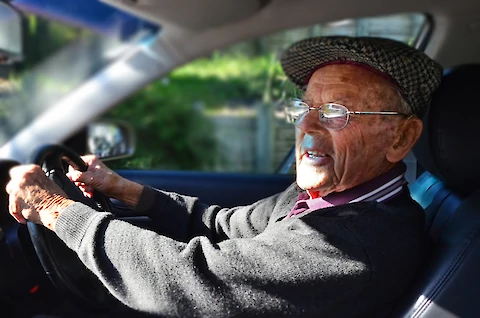
Many seniors are able to safely operate vehicles for a long time, sometimes even into their 80s and 90s. However, at some point in time, it may become obvious that driving is no longer as safe as it once was. When a senior loved one in your life needs to stop driving, there are several steps you may need to take.
Reasons Seniors May Need to Stop Driving
As we age, the ability to safely drive diminishes. Just as we can't physically do many things that we were once able to do when younger, driving is no exception. It is important to pay attention to signs that indicate a senior may need to stop driving.
Vision, reflexes, and reaction time diminish with age, making it more difficult for seniors to react quickly in traffic. Cognitive decline can also make it more difficult for drivers to manage safely behind the wheel. It can lead to increased confusion and disorientation, or it may make it more difficult for drivers to engage in all the tasks needed to safely operate a motor vehicle.
Medical conditions have also been known to affect a senior's driving abilities. Some medical conditions may, for example, interfere with reflexes. Keep in mind too that medications can cause drowsiness or dizziness, which may raise the risk of an accident behind the wheel.
What to Do When It's Time for a Senior to Stop Driving
If you observe signs that lead you to believe that a senior may need to stop driving, it's important to have an honest and open conversation with your loved one as soon as possible.
Consider bringing their doctor into the conversation, as they can provide advice on whether or not your senior loved one should still be driving. A medical professional’s opinion could help ease any tension.
Make sure the plan is carefully thought out and supported by the whole family before taking action, particularly as some family members may also want to take a number of other steps.
Offer Transportation
When possible, family members may want to offer transportation assistance. Family members and friends may want to talk through a plan for transportation ahead of time, including things like who will take a senior loved one to appointments and to other events.
Discuss Public Transportation Options
Take a look at what public transportation options are available in your city. Make sure your loved one feels comfortable with them before deciding to use them as a solution.
Look into Alternative Programs
In some cases, you may be able to find programs that can make it easier for your senior loved one to get around. Ride-sharing programs and senior transport services can all help get your loved one where they need to go while still keeping them safe. Those programs can also help seniors feel more independent.
Senior Helpers Madison, WI, Can Help
As a senior's physical state and cognitive ability change, they may need more help than before. For seniors in Madison, Beloit, Janesville, Stoughton, Monroe, and Oregon, Senior Helpers Madison, WI, can provide those needed services. Contact us today to learn more about the help we can offer.